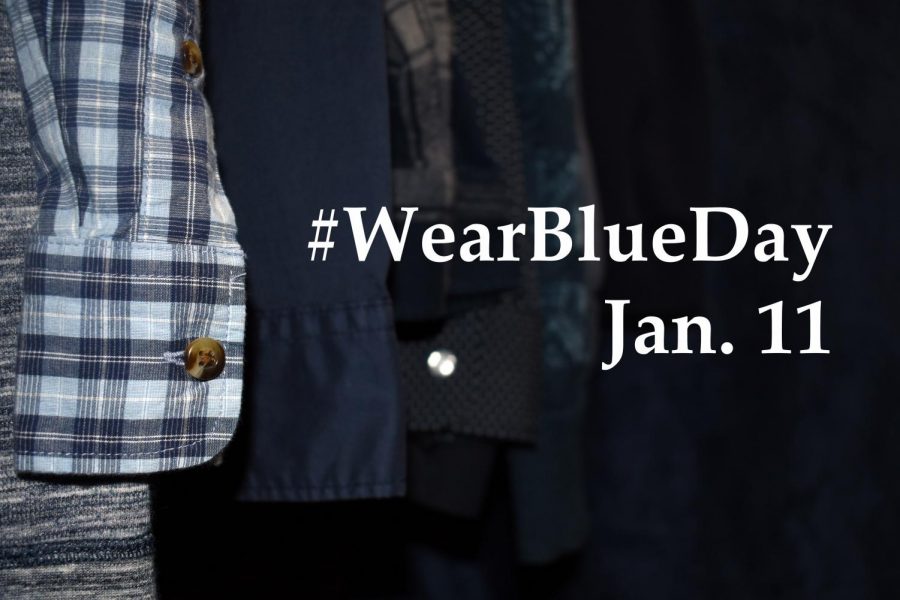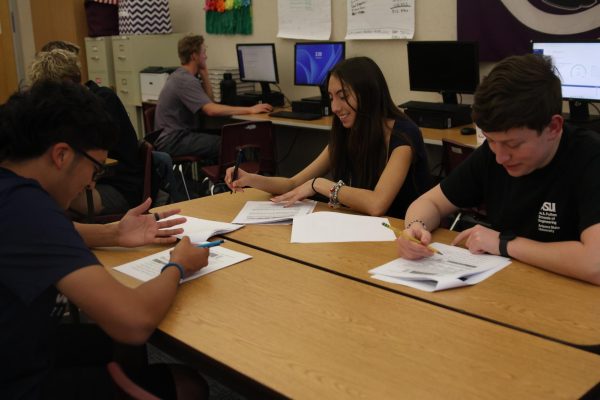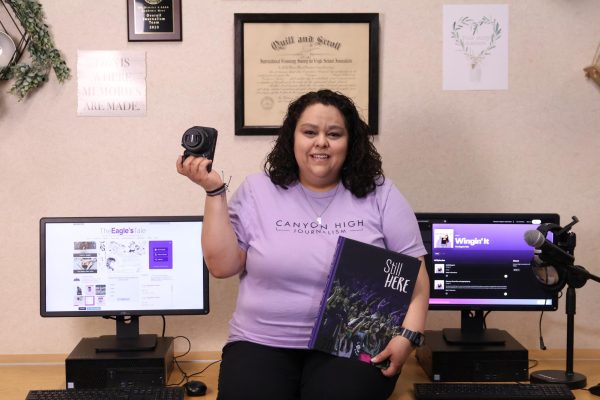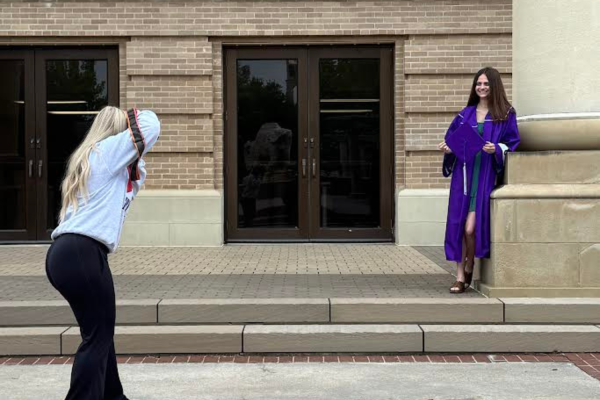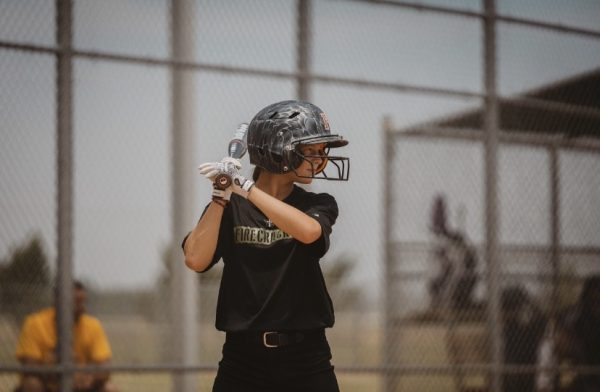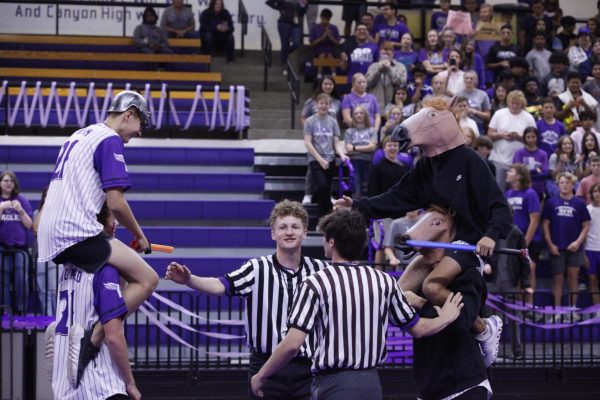#WearBlueDay to bring awareness to human trafficking Jan. 11
Participants can post pictures of themselves wearing blue clothing on social media with the hashtag #WearBlueDay to help raise awareness for human trafficking.
Students and teachers are encouraged to wear blue on #WearBlueDay Saturday, Jan. 11 for National Human Trafficking Awareness Day.
Participants can take photos of themselves and others wearing blue clothing and post the photos on social media platforms with #WearBlueDay. The event started after the U.S. Department of Homeland Security created the Blue Campaign to combat human trafficking by raising awareness of the crime, its victims and survivors.
Those interested can follow the Blue Campaign on Facebook, Instagram and Twitter. The organization also provides videos, infographics and other free resources with its “Tools That Teach: What is Human Trafficking?” webpage to promote the spread of information and understanding of human trafficking online and in communities. Junior Kaylie Yanez gave a speech about the topic in her speech class.
“Human trafficking is the act of taking someone for exploitation, whether that be for labor or for sex,” Yanez said. “Finding out about all the people in human trafficking and the people who get out of it was shocking. A lot of people know what human trafficking is, but they don’t know all the factors that go into it.”
Yanez said she found out about #WearBlueDay while researching online.
“I found out about Thorn, an organization who helps kids who are sexually abused, and that put me on a trail of finding out about other organizations that want to help inform people,” Yanez said. “I found out what human trafficking is, how big of an industry it is and how much money is in it. After doing all this I realized just how needed it is to make people aware of this, and I hope my speech added to that.”
Carolyn Castro, a graduate of West Texas A&M University, is personally involved in helping victims.
“At the end of January, I’ll be moving to Cambodia to work with an organization called The Hard Places Community who work with children in human trafficking,” Castro said. “About five years ago I did a mission trip to New Zealand learning about justice and learned about human trafficking and what it is. I got involved because I learned a lot about it through church, and I became more educated and learned about the men and women affected by it.”
The Hard Places Community helps children as young as five and into their teenage years who are sex trafficked.
“We do Kids Clubs, which entails playing games with them and hanging out with them, but also building relationships so we can eventually get them out of that lifestyle,” Castro said. “They have worship time, where the kids enter the presence of God through creative outlets. They have programs to teach them English and computer skills as well as soccer and wrestling. They have different kinds of therapy and also have social workers to help go through those processes of healing, not only emotional and physical, but also through the legal system so they don’t have to go back to that lifestyle.”
Castro said the work she is doing is important because it helps victims get out of a lifestyle of abuse.
“We are able to show them they are worth so much more than the price tag on them,” Castro said. “And once we get them out, educating them and also educating the community what this [human trafficking] is, we are able to have an impact. Human trafficking is everywhere, and being able to change victims’ lives so they don’t have to live in bondage, but can live in freedom is so important.”
Castro said bringing awareness to human trafficking in a person’s community is one of the biggest ways to help fight the crime.
“Even in Amarillo, there are so many women, children and homeless people being trafficked,” Castro said. “If you want to get involved, there are so many organizations overseas and in the States. So, even finding ways to get involved in Amarillo and doing research and bringing awareness to the community about this issue is so important to show people this isn’t overseas or something just happening in other cities, but it is also happening in our backyard.”
To report suspected human trafficking individuals can call 1-866-347-2424. The National Human Trafficking Hotline is 1-888-373-7888, or alternatively, individuals can text “HELP” or “INFO” to BeFree (233733).
“It’s not just the professionals who can set somebody free, and being able to understand the signs of human trafficking and how to help someone is significant,” Castro said. “A big goal of mine is to make people more aware of what is going on and how people can be a part of the change in someone’s life. Again, it is not just something overseas, but it is something in our own communities in Amarillo and Canyon, and I hope people realize human trafficking is a lot bigger than we realize.”

Howdy! I'm Blake Loria, and I want to pursue a career in journalism, so I am honored to be serving as editor-in-chief for my third and final year on staff. As a senior, I am quite involved around Canyon High, so when I am not editing or practicing for...


